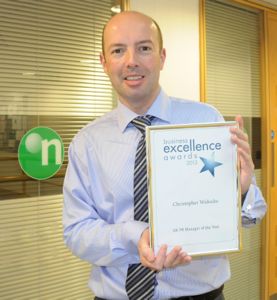AURELIUS-owned Getronics is partnering with NEC and buying NEC Enterprise Solutions' direct sales and service activities in the UK, Spain, Portugal and Switzerland.
NEC Europe has announced a long-term strategic partnership in Enterprise Communications in Europe and the transfer of NEC Enterprise Solutions' direct sales and service businesses in four European countries to the Getronics family.
This includes the transfer of NEC Enterprise Solutions' business in the UK to Getronics and in Spain, Portugal and Switzerland to Connectis, a member of the Getronics family. The transfer of the businesses has been completed and both parties agreed not to disclose financial details of the transaction.
NEC and Getronics/Connectis have signed a long-term business partnership agreement for the distribution and supply of NEC's portfolio of Enterprise Communications products and solutions in the four countries.
This offers a pan-EMEA system integration channel to NEC Enterprise Solutions in Unified Communications & Collaboration and Mobility. At the same time, NEC Enterprise Solutions' expertise and customer base in the four countries allows Getronics and Connectis to have broader market opportunities with enhanced portfolio of Enterprise Communications solutions and service.
The reshaping of activities in the four countries is in line with NEC Enterprise Solutions' strategy towards growth by taking advantage of indirect distribution to address the opportunities offered in the market for IT & Communications products and services. Enhancing and strengthening its indirect distribution model enables NEC to address a larger number of customers with its expanding portfolio of systems and applications.
"The interest in and commitment to our portfolio of products and solutions from such a leading solution provider is a clear recognition of our leadership in enterprise networking solutions for the converged world", said Paul Kievit, Vice President, Enterprise Vertical, NEC Europe. "We will continue to develop and deliver new systems and applications to fully conform to market developments and customers' requirements, in support of further growth of our business in this region. Our channel-centric approach allows us to focus on the development of new systems and applications, enabling us to offer a wide range of cutting-edge solutions."

 Nimans' PR whiz Chris Widocks has scooped a Business Excellence award in recognition of his work with the media.
Nimans' PR whiz Chris Widocks has scooped a Business Excellence award in recognition of his work with the media. Ten Entanet staff have walked barefoot across red hot burning coals and broken glass risking cuts and burns to raise money for charity.
Ten Entanet staff have walked barefoot across red hot burning coals and broken glass risking cuts and burns to raise money for charity. Paul Whiting, President of Global Sales for Sennheiser electronic GmbH & Co, has been awarded an Honorary Doctorate from Buckinghamshire New University.
Paul Whiting, President of Global Sales for Sennheiser electronic GmbH & Co, has been awarded an Honorary Doctorate from Buckinghamshire New University.